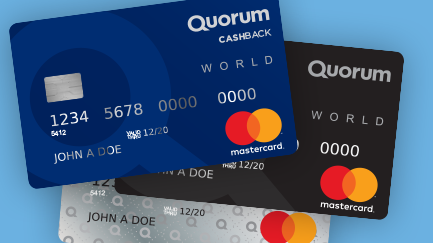In today’s competitive job market full of highly educated and qualified candidates, it can be difficult to stand out from the pack. Hiring managers and HR reps comb through mountains of resumes to find the few genuinely exceptional candidates who qualify for an interview. Help your resume shine through the static and avoid the shredder with the tips below.
1. Use a format that permits easy scanning.
Many companies receive dozens—if not hundreds—of resumes for job advertisements, meaning your resume may receive a one- or two-minute initial review. During this critical stage, make sure it is easy to read and well-formatted. If your resume is cumbersome, your font size too small, or the content poorly organized, you may end up in the “No” pile even though you are highly qualified for the position. Browse some online resources (Indeed, Zety, Glassdoor, Novo Resume, LiveCareer) to learn more about crafting an optimally formatted, and easy-to-read, resume.
2. Clarify past performance results by including metrics.
We all love to capture our success stories at past positions on a resume. However, stating that you “dramatically boosted sales” or “enhanced customer service” at a previous job often isn’t helpful for a hiring manager. Quantify your past performance by using hard-hitting numbers that signify just how well you performed. State that you “boosted sales by over 36 percent annually” or that you “improved customer satisfaction ratings by over 20 percent.” These numbers help clarify the success you achieved.
3. Intelligently embed some industry-specific keywords.
Each sector has a unique set of jargon and acronyms. Many hiring managers and HR reps look for the presence of some of these terms when scanning your resume to quickly assess your familiarity with common concepts relevant to the industry. Become familiar with these keywords by reading industry-specific publications or combing through some of the following sites which offer sample resumes tailored specifically for jobs in diverse industries, like Monster.com, EResumes, Hloom, Resume Genius.
Remember: no matter how “buzzy” the jargon: Never use acronyms or phrasing that you do not understand or could not thoroughly explain if asked questions about them during an interview.
4. Edit for precision and clarity.
Hiring managers and HR reps, with few exceptions, do not have the time to dig through each section of a multi-page resume. To the greatest extent possible, boil down your work history, special skills and education to one page, two pages maximum. By condensing your qualifications into easily digestible text blocks with concise wording, you can help catch a hiring manager’s attention and, possibly, land an interview.
5. Demonstrate social media prowess.
Undoubtedly, your resume header is the first place a potential employer’s eyes will fall. Use this space to provide a URL to your professional social media networking page on sites such as LinkedIn, Twitter, Pinterest, Tumblr and Flickr. These sites offer a wide range of networking options, thought leadership opportunities, the ability to showcase examples of your work and much more. This process may help grab the attention of a recruiter or provide an additional resource for a hiring manager to learn more about you.
Speaking of social media, take time before officially submitting your resume to conduct some spring cleaning on your social media profiles. Modern companies often run a Google search on you or dig through your Facebook page before making a hiring decision. Therefore, it pays to remove photos, articles or humor which could make you appear less than professional.
6. Customize your resume to suit a specific job announcement.
Too often, job hunters painstakingly hammer out a master resume which they submit to multiple unique companies or sectors. While developing a master resume is a fantastic strategy to capture the full scope of your experience and qualifications, it is often more helpful to create resumes tailored to the requirements laid out in each individual job announcement. Always be sure to read the desired qualifications for each open position carefully. Then compare them to your resume to ensure you capture, and emphasize, the experience an employer needs.
7. Don’t forget your cover letter.
Do you include a cover letter with each resume you submit? If not, you may be missing out on a golden opportunity. A well-written cover letter not only explains your unique qualifications, but provides the perfect opportunity to clarify or highlight aspects of your resume. By going the extra mile to craft a cover letter, you demonstrate a strong desire for the open position which could help set you apart from the competition. Learn more about cover letters and find some samples through resources (CareerOneStop, Jobscan, BalanceCareers)
8. Avoid the temptation to hit send before you receive feedback.
Resist the temptation to fire off your resume prematurely. Instead, take some time to email a draft version to friends, family members, former co-workers and mentors to solicit input. The feedback you receive may not only help you catch errors you may have overlooked, but you could also gain valuable feedback to cause you to rethink a section.
Additionally, since many employers desperately need individuals with excellent communication skills, a well-written, error-free resume with proper grammar and formatting may be your key to getting a foot in the door!
Editor’s note: Quorum is not affiliated with any of the companies mentioned in this article, and derives no benefit from these businesses for placement in this article.










Comments Section
Please note: Comments are not monitored for member servicing inquiries and will not be published. If you have a question or comment about a Quorum product or account, please visit quorumfcu.org to submit a query with our Member Service Team. Thank you.